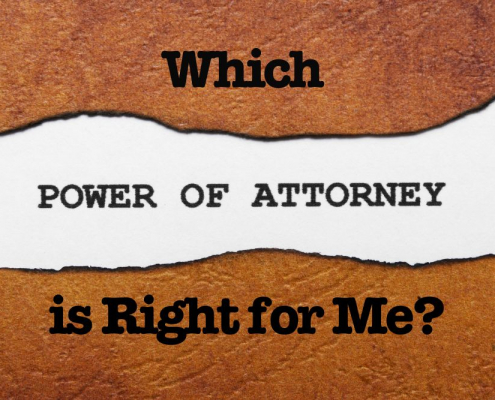What is Medi-Cal Recovery?
When a Medi-Cal recipient dies, the state can seek repayment for the cost of certain services received that were paid for by Medi-Cal.
After the Medi-Cal recipient dies, the state will send the heirs or survivors an “estate recovery claim” asking for payment for the amount of Medi-Cal benefits paid on behalf of the deceased individual.
The state does not put a lien on the home and the state does not take away your home. The state will, however, try to collect, and, if you cannot get the claim waived and still cannot afford to pay, the state will negotiate a “voluntary lien.”
For most Medi-Cal recipients, their house is the only asset available, but there are steps you can take to protect your home.
Imagine losing your loved one, grieving, burying, and placing them to rest only to have Medi-Cal demanding you now pay for the long-term care your departed loved one received — an amount that has reached, in some cases, hundreds of thousands of dollars, sadly, too many families experience this traumatic, horrific and cruel situation all the time.
It is a well-kept secret with devastating and shocking consequences for families, and sadly this practice recoups only a tiny percentage of Medi-Cals spending while contributing to generational poverty and wealth inequality.
By forcing the sale of family homes, Medi-Cal estate claims keep families in poverty and increase the risk of homelessness.
Low-income families do not have to risk the family home to receive needed long-term care.
So, how can you protect your home and property from a Medi-Cal recovery?
Here are some of the ways:
Life estates
Setting up a “life estate” is an alternative for protecting the home from estate recovery. A life estate is a form of joint ownership of property between two or more people. They each have an ownership interest in the property, but for different periods. The person holding the life estate possesses the property currently and for the rest of his or her life. The other owner has a current ownership interest but cannot take possession until the end of the life estate, which occurs at the death of the life estate holder.
Example: Jane gives a remainder interest in her house to her children, Robert and Mary while retaining a life interest for herself. She carries this out through a simple deed. Thereafter, Jane, the life estate holder, has the right to live in the property or rent it out, collecting the rents for herself. On the other hand, she is responsible for the costs of maintenance and taxes on the property. In addition, the property cannot be sold to a third party without the cooperation of Robert and Mary, the remainder interest holders.
When Jane dies, the house will not go through probate, since at her death the ownership will pass automatically to the holders of the remainder interest, Robert, and Mary.
Although the property will not be included in Jane’s probate estate, it will be included in her taxable estate. The downside of this is that depending on the size of the estate and the state’s estate tax threshold, the property may be subject to estate taxation.
Another consideration is the potential property re-assessment that may occur by increasing the property tax bill, because of Prop-19 rules.
The upside is that this can mean a significant reduction in the tax on capital gains when Robert and Mary sell the property because they may receive a “step-up” on the property’s basis.
Life estates are created simply by executing a deed conveying the remainder interest to another while retaining a life interest. In California, once the house passes to the remainder beneficiaries, the state cannot recover against it for any Medicaid expenses that the life estate holder may have incurred.
Irrevocable Trusts
Another method of protecting the home from estate recovery is to transfer it to an irrevocable trust. Trusts provide more flexibility than life estates. Once the house is in the irrevocable trust, it cannot be taken out again. Although it can be sold, the proceeds must remain in the trust. This can protect more of the value of the house if it is sold.
Revocable Trusts
NEW CALIFORNIA MEDI-CAL RECOVERY LAW REFORMS
What Was the Law Before January 1, 2017?
For over 20 years, California law has allowed claims on the estates of those who received any Medi-Cal benefits when they were 55 years of age or older, regardless of the medical services received or whether recipients were in a nursing home.
For those who die on or after January 1, 2017, recovery is limited to those estates that are subject to probate under California law.
For example, assets transferred via living trusts, joint tenancies, survivorship, and life estates, as previously noted, are no longer subject to recovery. Manufactured homes and mobile homes are also excluded from estate recovery claims since they are not subject to probate in California.
It is important to note that if you also own property where your mobile home sits, it is not automatically excluded from recovery but depends on the value of the real estate for the small estate exemption, and you should consider steps to protect that property from recovery.
Assets distributed through a will, depending on the value of the estate, are usually subject to probate in California.
Other benefits are available, and they are explained in the Canhr publication that can be accessed on the following link:
http://www.canhr.org/medcal/medcal_recoveryinfo.htm
Avoiding a Medi-Cal recovery is not as straightforward as it appears, if you are interested in learning how you can protect your home, speak to our Temecula elder law or estate planning attorneys. To schedule an appointment at our Temecula office or one of our other offices located throughout the state of California, contact us at (800) 244-8814
 https://www.copenbarger.com/wp-content/uploads/2024/10/Power-of-Attorney.jpg
667
1000
Valerie Guerrero
https://www.copenbarger.com/wp-content/uploads/2025/11/Frame-64-2.png
Valerie Guerrero2024-09-08 09:36:512024-10-25 09:21:30Which Power of Attorney is Right for Me?
https://www.copenbarger.com/wp-content/uploads/2024/10/Power-of-Attorney.jpg
667
1000
Valerie Guerrero
https://www.copenbarger.com/wp-content/uploads/2025/11/Frame-64-2.png
Valerie Guerrero2024-09-08 09:36:512024-10-25 09:21:30Which Power of Attorney is Right for Me?



